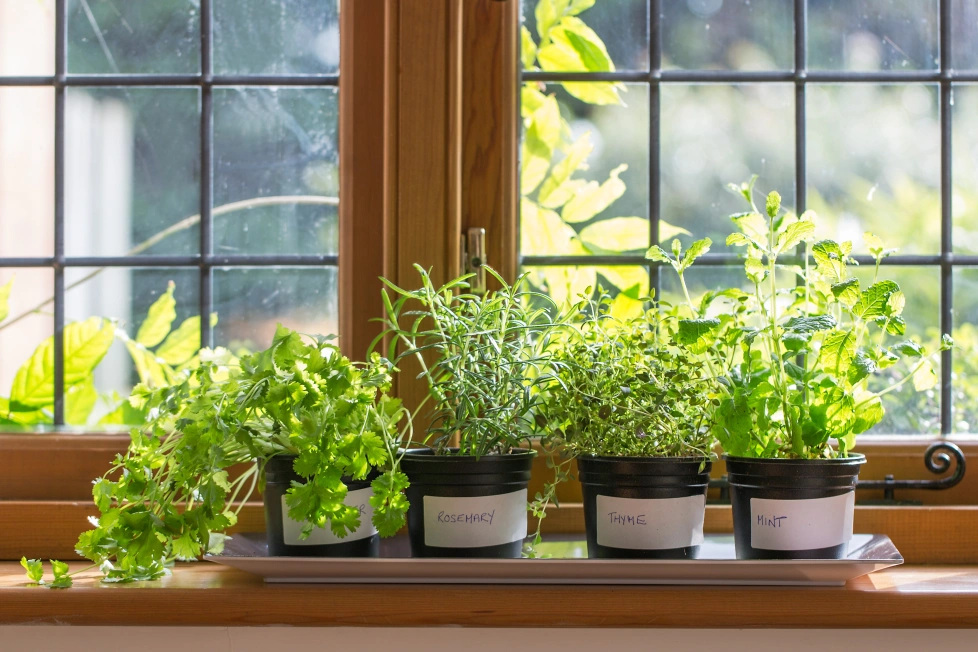Micro-gardening has been around for a long time. And the interest in small-space gardening has only continued to increase. As more and more people move to cities while at the same time becoming more health-conscious than ever, the interest in micro-gardening and sustainable gardening has significantly increased.
What Exactly is Micro-Gardening?
Micro-gardening, as the name suggests, is when plants, usually vegetables and other crops, are grown in small, confined spaces. Containers with tomato plants on the balcony of an apartment, or small buckets with peppers, beans, or squash on a small patio are common forms of micro-gardening. It is taking the standard process for large-scale farms and scaling it down to fit into a small backyard or a place where there is little to no yard for a traditional garden.
As long as you can provide enough soil for the crop you want to grow and can supply ample sun and water, you can grow just about anything in a container or smaller garden space. Micro-growing is even popular among specialty growers as crops such as mushrooms, marijuana, and similar selective plants are often grown in this manner.

How to Be Successful With Micro-Gardens
- Thou shalt not harm the environment. One of the biggest reasons people want to learn how to do small-scale gardening is to help improve the environment. They want to eat better, live better, and be better stewards of the world around them. Be sure that whatever you do to prepare your gardening space that it is making a positive impact on the environment.
- Thou shalt not plant too much in your first year. Like any new project or hobby, it is always best to start slowly and build gradually as you gain experience. This is especially true with micro-gardening, as starting with a small patch of ground or a few gardening containers in your first go-around is best. That is, unless your goal is failure, then this is a surefire way to over-extend yourself and get in over your head right off the bat!
- Thou shalt not underestimate how much time it takes to tend to a garden. Can you really commit a half hour every day to the garden? Are you willing to get out there and check for pests and weeds regularly? Will you be willing to postpone a trip out of town for the sake of your garden crop? These are the kinds of questions you will have to answer.
- Thou shalt not plant only ‘healthy’ plants. Yes, you want to eat healthily and be better about your diet and health. However, you should not only plant those crops no one really wants to eat. Five big containers of spinach or eggplant might not be the best investment in time and energy if no one in the family is a fan of those vegetables in the first place.
- Thou shalt not neglect to plan ahead. Gardening takes time and planning, and even small-scale gardening requires a certain degree of planning and preparation. Making sure you choose the best spot and provide the right environment and protection for your crops before you even begin will save you time, money, and stress down the road.
- Thou shalt not assume you will learn everything right away. Unless you are superhuman, you will need some time to learn the ins and outs of micro-gardening. And even if you have read the books and know your stuff, there is a big difference between book knowledge and practical application regarding gardening. This is where going slow and being willing to make some mistakes can become an invaluable approach as you start off.
- Thou shalt not get hung up on the details in the beginning. Gardening is a personal experience for many people. It would be best if you did not get yourself into a position where you can’t see the forest for the trees, so to speak. Make sure you focus on the things that matter rather than the pesky details that get in the way and don’t make a difference one way or another.
- Thou shalt not overdo it with one particular crop. Diversity is the spice of life, even if you want to grow your favorite vegetable or other crops. Sometimes something can go wrong. If a pest or disease attacks your garden, you don’t want to lose your entire crop. Growing several types of plants will ensure you get at least something for all your hard work.
- Thou shalt not beat yourself up. The idea of something having a green thumb is common among gardeners, but it can lead to feelings of inadequacy when things go wrong. And for those new to micro-gardening, comparing success against more experienced growers can be discouraging. Remember, everyone starts somewhere, and you can learn and develop your green thumb as you go and learn and gain experience.
- Thou shalt not forget the reason for gardening. The final commandment for successful micro-gardening, no matter what crops you choose, is to focus on the joy, peace, and relaxation gardening brings. Getting healthy food, selling crops for money, enjoying tasty meals, and all that is nice. But getting out in nature and enjoying the physical and mental benefits of gardening should always be one of the top motivations for your small-scale home garden!

With these tips in mind, you can be better prepared to discover the many benefits of micro-gardening at home. No matter how much or how little space you have available, you can grow a wide range of crops you and your family can enjoy!






